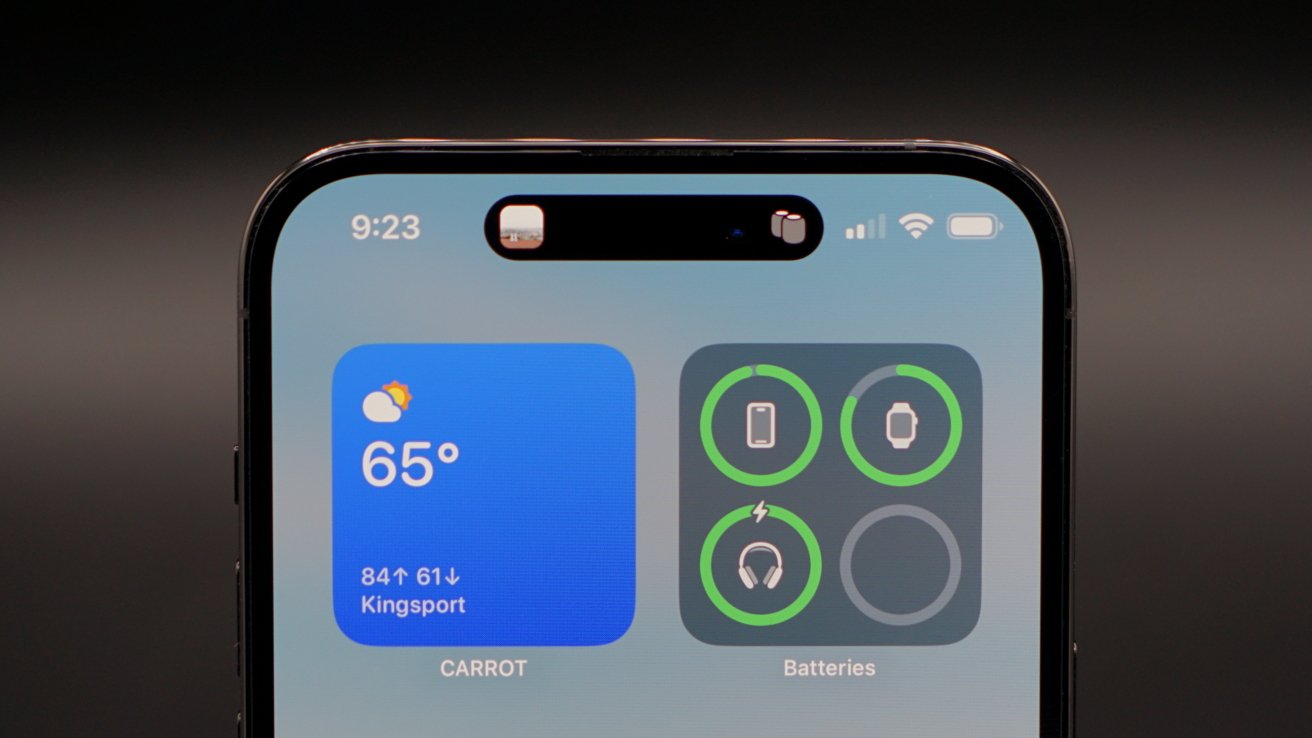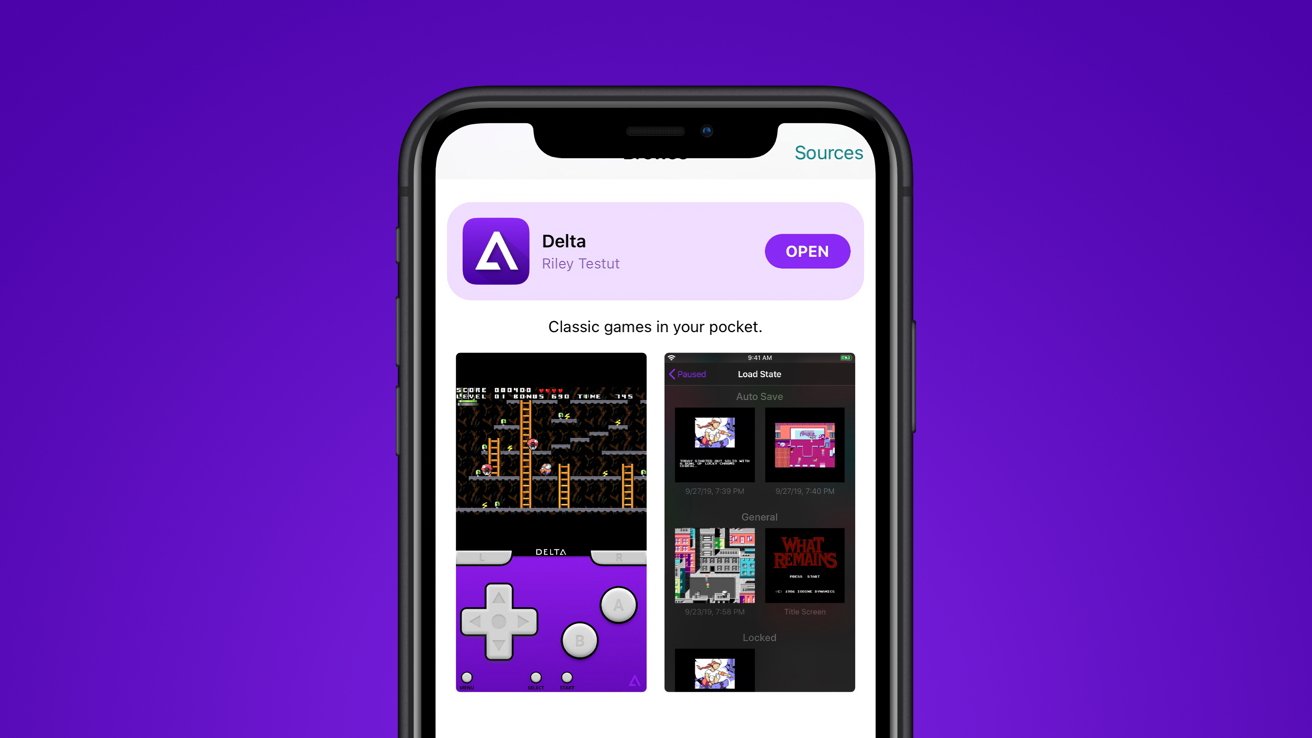There are a handful of pros to getting access to alternative app stores and side-loading on iPhone, but way more cons — especially for tech support.
The magic of Apple's single App Store approach has always been its simplicity, which could soon disappear. If the EU gets its way, and it likely will, Apple will soon introduce the ability for users to side-load apps and use alternative app stores.
On the surface, this could be a net win for users. More choice, competition, and software previously only available on Android could come to iPhone.
However, it is a little more complicated than that. While we don't have the details of Apple's implementation, and won't until they say something about it, some basic ideas are worth addressing.
Side-loading vs alternative App Stores
An alternative app store would allow users to purchase apps and download them directly to their iPhone without a jailbreak or other operating system alteration. Third parties would control these stores and offer alternative payment systems like PayPal or cryptocurrency.
Side-loading is an even less centralized version of this and can be thought of similarly to getting apps for the Mac. Users would be able to purchase software directly from a vendor's website and download it without any interference.
Of course, there would still be restrictions and control from Apple. Instead of Apple acting like Walmart stocking its shelves with apps, it would act like a city choosing which stores could operate and how.
Side-loading would ultimately allow users to install any app they want within reason. Again, Apple will still have control over the OS, so unless these apps violate the device's security, they should only be able to do what is currently allowed.
Alternative app stores would theoretically be required to operate within some level of restrictions. They would offer similar apps to Apple but use different payment systems and have alternative content guidelines.
For example, an alternate app store might have pornographic material, or apps like "Fortnite" that were kicked off the store for a number of reasons. Emulators that don't sell illegal game ROMs would likely also be acceptable as long as users provide their own game files.
Unlike Google's open Android operating system, Apple will likely still regulate and gatekeep to an extent. However, it would have much less control, and more sneaky spyware or scams would creep in.
Expect absolutely every big tech company that can to spin off their own app store. Microsoft has already said that they want one, and given the battles that Facebook has been fighting with Apple for years, they will likely remove their app from Apple's App Store and make their own.
And, how the in-app purchase model will work under this system is anybody's guess.
Jailbreak lives on
No matter what Apple does to address the EU law, it won't be enough for everyone. Jailbreaking allows users to change how iOS operates and bypasses all restrictions set by Apple.
Apple will likely be required to unlock some aspects of its hardware and software previously kept for first-party use. This will be done in the name of market fairness but does open up the possibility for abuse.
So, realize that side-loading and alternate app stores do not signal the end of Jailbreaking. Control over the OS itself will still be restricted.
Potential risks for users
Users shouldn't worry about a sudden influx of dangerous viruses — as long as Apple executes this move correctly. Though scams, gambling, and privacy-violating software will likely be more easily accessible to users.
It isn't clear if this will be something available by default within iOS or if multiple scary dialog boxes and hidden menus must be navigated first. The implementation angle performed by Apple could mean the difference between it only affecting select nerds or your grandmother.
Apple prevents certain apps from appearing on its App Store but won't have absolute control if other stores are in play. For example, Facebook could re-introduce Onavo Protect and begin collecting extensive data from users.
Not every threat has to come in the form of an iPhone-destroying virus. Users could run into fake versions of apps that collect bank logins, for example.
If you're the family tech support, ensure everyone understands the risks and help block off potential abuse ahead of time. Apple will likely eliminate some issues, like giving parents control over whether a child can side-load at all.
Keep in mind that no system is foolproof. Even if Apple hides alternative app stores and side-loading behind multiple levels of authentication, the most technically inept users can get by. Some scams can appear on YouTube or Facebook with videos or articles instructing users to bypass Apple's restrictions. People might do this because they've been convinced to install a malicious crypto app, casino app, or spyware via an ad.
Tech support will be precarious after Apple's App Store changes go into effect.
None of this may happen
All that being said, Apple may not implement any of this. Or, at the least, it won't be implemented in the way we expect.
Apple is reportedly beginning work on supporting side-loading and alternative app stores, but it doesn't have to comply until 2024. Multiple companies will likely push against this regulation, and a lot can change in a year.
WWDC 2023 will likely be the canary for these features. If Apple addresses alternate app stores or side-loading there, then the features will already have been implemented. Otherwise, Apple will wait until the last minute to comply.
 Wesley Hilliard
Wesley Hilliard









-m.jpg)







 Marko Zivkovic
Marko Zivkovic

 Malcolm Owen
Malcolm Owen

 Amber Neely
Amber Neely

-xl-m.jpg)









24 Comments
I recently had to help my MIL set up something with her iPhone. When I asked her to open the App Store she hunted around between 4 screens of app icons before declaring she doesn’t have an App Store.
ETA: My MIL also has a Mac, her first was a Bondi Blue iMac, so she isn’t new to them. I have made it a habit to run Malware Bytes every couple of months for her and it isn’t particularly uncommon for something to be found. She loves to install stupid BS “apps”, like the one that put a rotating carousel on her desktop (“It’s SO CUTE!”) and meanwhile it’s getting flagged as malware. I had to argue with her about removiung some malware program she had installed. She was upset that I wanted to delete it because she had paid for it.
My guess is that sort of thing will only get worse when/if iOS is opened to third-party stores or side-loading.
I hope Apple will have a button in Settings to disable showing all side loading apps.
This is an awful idea.
Recently read an article that a bank malware targeting people in… Taiwan(? I think, but don’t remember specifically where) would reroute calls to a “not their bank” call center, with the user having no idea it was happening. That is terrifying. At the time, it was only targeting the people in that country, but I can’t imagine that can’t/won’t become more of a global thing.
Apple should sue the EU for encouraging elder abuse.